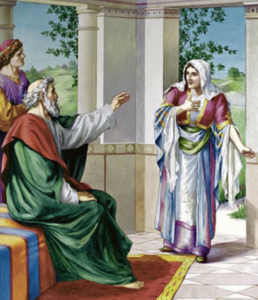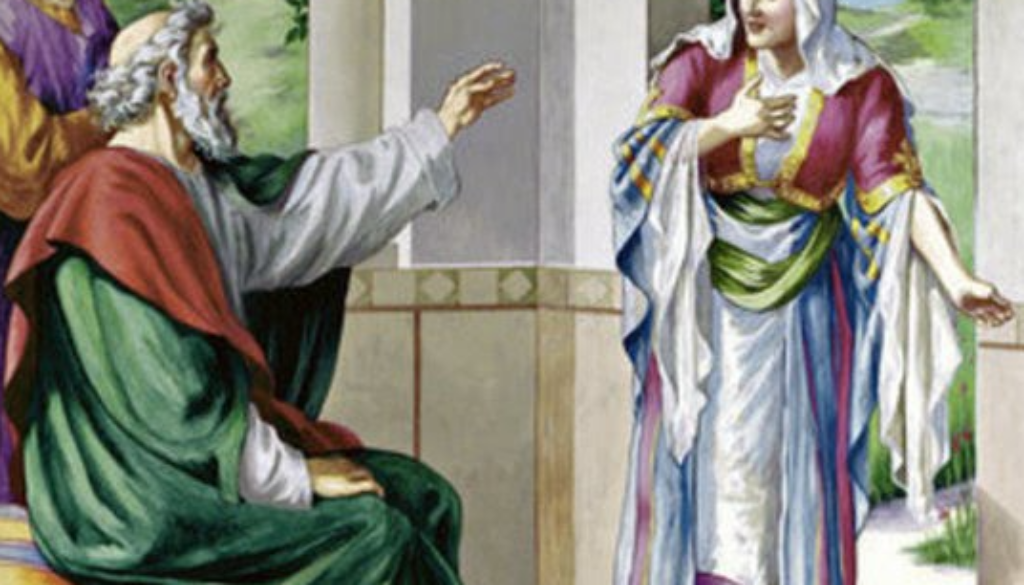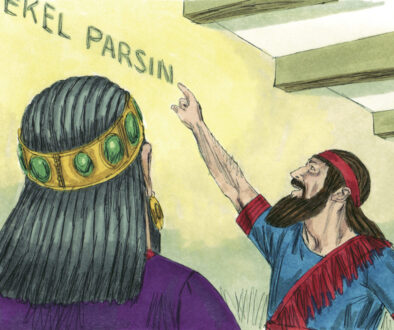2 Kings 8:1-6 Restored

Elisha protected the woman who built him a room. He sent her away before a severe famine. When she returns, because of her relationship with Elisha, her property is restored.
I am curious to know when this famine took place. Was it part of the time Samaria was under siege? Were they under siege for years instead of months, like my story proposed? Was there a change in kings during this famine? Was there a change in relationship with the king and Elisha during the famine? I know. Too many questions.
As I’m reading I have a few observations I want to throw out there too. When Elisha healed Naaman Gehazi had Naaman’s leprosy on himself. This was because Gehazi took payment from Naaman when Elisha had refused it. At the time I wondered if this meant that Gehazi could no longer serve Elisha. Unless the stories of Elisha are SERIOUSLY out of chronological order, Gehazi is serving while being a leper. He is even conversing with the king. Maybe he was able to hide it beneath his robes.
When Gehazi is talking with the king, the king wants to know about the miracles of Elisha. I don’t blame him. I love hearing about them too and the works God does through other people too. I wonder if the subject of Naaman came up and, if it did, did Gehazi’s judgment come up too.
One story we know that did come up was the raising of the woman’s son. This story impressed the king as it would anyone. But what no one could foresee is that the woman herself would walk in at that very moment. I imagine the king peppering her with questions. “Were you frightened?” “How did Elisha do it?” “Were there any lasting effects for your son?” “Did he tell you anything about what he experienced after he died?” That last question is one people long to know, even now.
Is there a reason Gehazi was talking to the king instead of Elisha? Elisha didn’t meet with Naaman when he came seeking help either. He did meet with him when he returned though. Did Elisha conduct a lot of his interactions through Gehazi? If so, why? When the woman’s son died he sent Gehazi ahead to place his staff on the child’s face.
Thinking of this reminded me of Jesus and the centurion’s servant. The centurion understood the role of authority. Jesus had but to speak the words and his servant would be healed. I have no doubt that if Jesus had sent a representative in His place, the centurion would have accepted that authority too.
And why was Gehazi talking to the king in the first place? Was he bringing a request? Had he been summoned by the king? Was Gehazi there to ‘pave the way’ for the woman’s arrival? It just seems rather convenient to me. Maybe Gehazi was there because the king would have expected an immediate reason for Elisha visiting where Gehazi could ‘shoot the breeze’ and not arouse too much suspicion.
All this set up and we haven’t really looked at the main character in our reading; the woman who cared for Elisha. Let’s delve into her part of the story.
It is evident that this woman and Elisha had a close relationship. I have no doubt that she continued to provide for Elisha’s needs over the years. Elisha thought enough of her and her family to warn them of the upcoming famine AND tell them how long it would last. Elisha and Gehazi didn’t leave Israel during the famine. I have no doubt that God continued to care for them during it. He stayed to continue to call the people to repentance.
The woman and her family left everything they had behind. I’m wondering if she was a widow by the time she left and/or after she returned. The first time we hear of her husband is when she consults him about building the room for Elisha. The last time we hear of him is when her son died. She asked him to prepare her a donkey to take her to Elisha. In today’s story it is she and her son who appear before the king. “My lord, O king, here is the woman, and here is her son whom Elisha restored to life” (verse 5b). The king speaks with her and she shares her story with him. After she shared her story with him then she made her request. The king gave her all she had before plus what she lost by being absent during the years of famine. “Restore all that was hers, together with all the produce of the fields from the day that she left the land until now” (verse 6b).
Does this mean that someone else was living in her house and farming her land in her absence? What happens to them now that she is home again? Are they the ones who have to pay her for the produce of the fields?
I was thinking about what this story says about our lives. I was reminded that God promised to restore to His people what the enemy has stolen and what the locust has eaten. The king is performing the promises of God for this special woman. God can and does do the same for us.
I know this is a small thing but when I was a teenager I had a bicycle stolen from my house. I love riding my bike and was devastated by its loss. I didn’t have a way to replace it but God did. I was given a bicycle that looked identical to mine, except for fading paint, by someone from our church. I don’t even remember telling anyone it was stolen but God knew and He took care of it. He has blessed me beyond measure over my life and I look forward to seeing where we go next. I am His and He cares for His children!
Father God, thank You for being my Father. Thank You for the earthly father You provided for me too. I learned of Your love from his example. Not everyone is blessed as I was with such an example. He cared for me, and still does. He even helped me with my project just a few days ago because he loves me. I know Your love makes even his pale in comparison.
I was thinking about my ‘needs’ the other day and I realized that, apart from my children and grandchildren’s salvation, I honestly can’t name any. You have provided for my needs more abundantly than I could ever ask or think. I’m not ‘rich beyond measure’ but I don’t want to be either. I’m not without any ‘concerns’ in my life but they are what keep me growing. What I am is safe in Your arms. No matter what comes, or doesn’t come, that is ALL I need. Feast or famine, I’m Yours and that is what will see me through.



